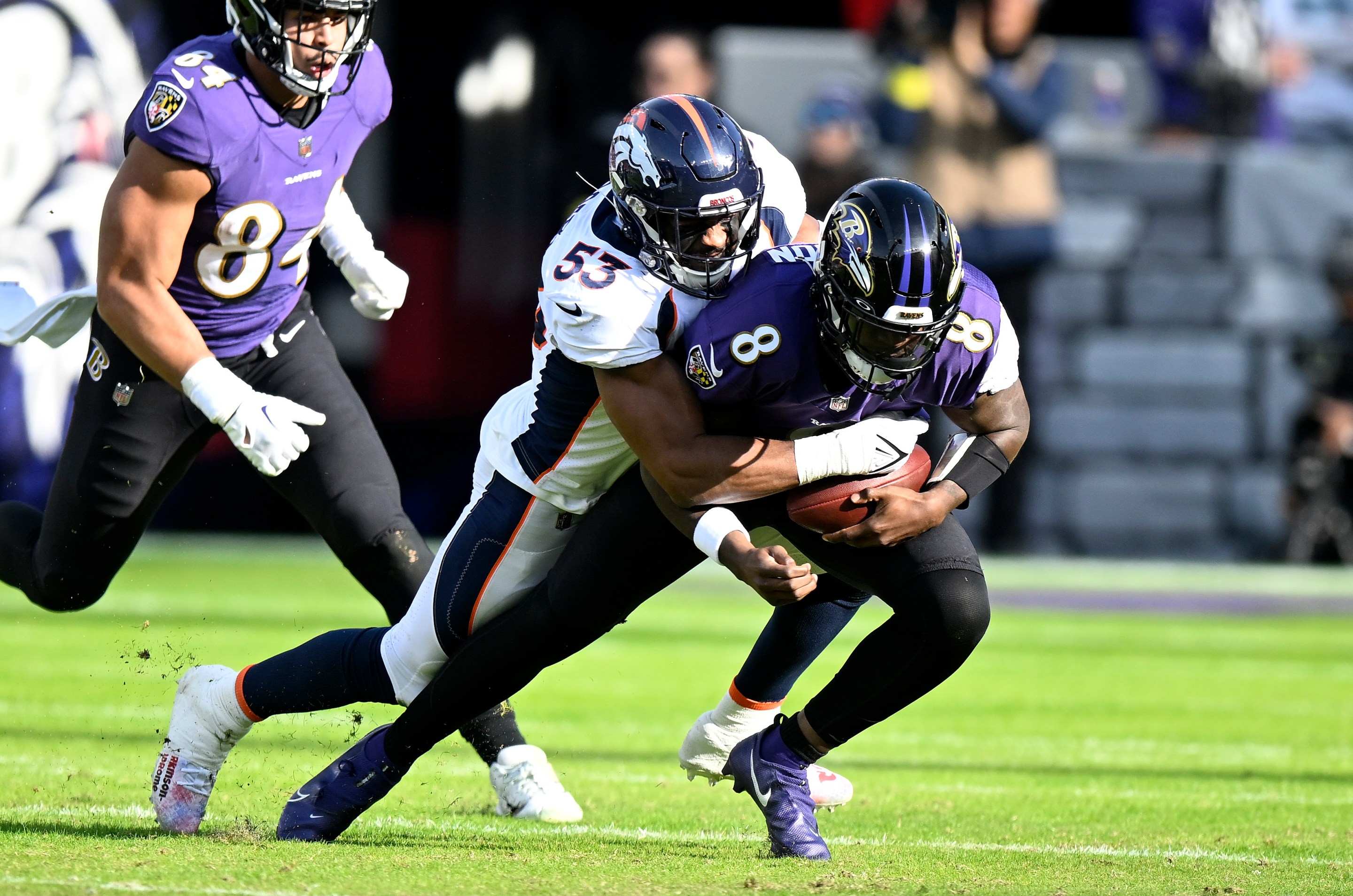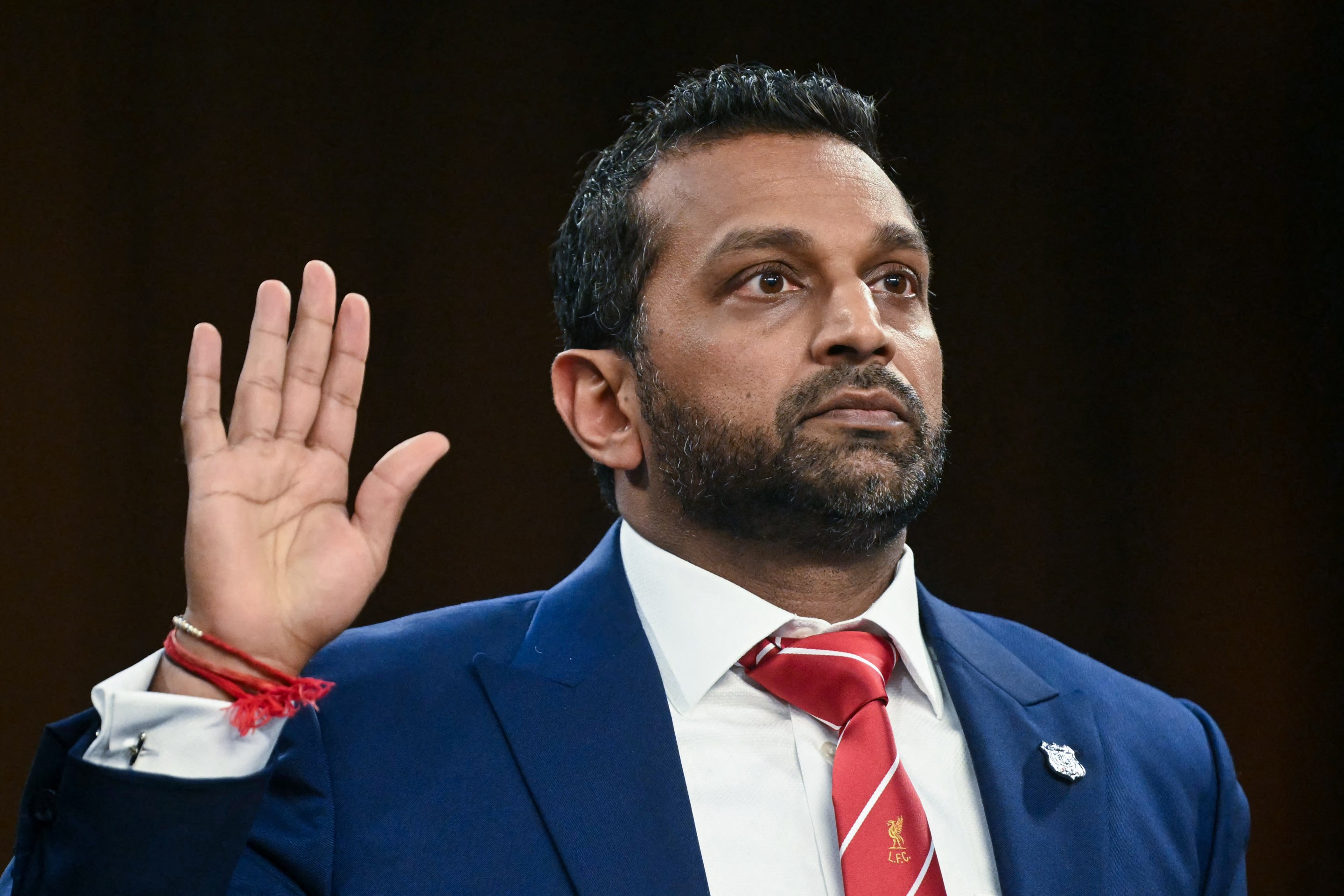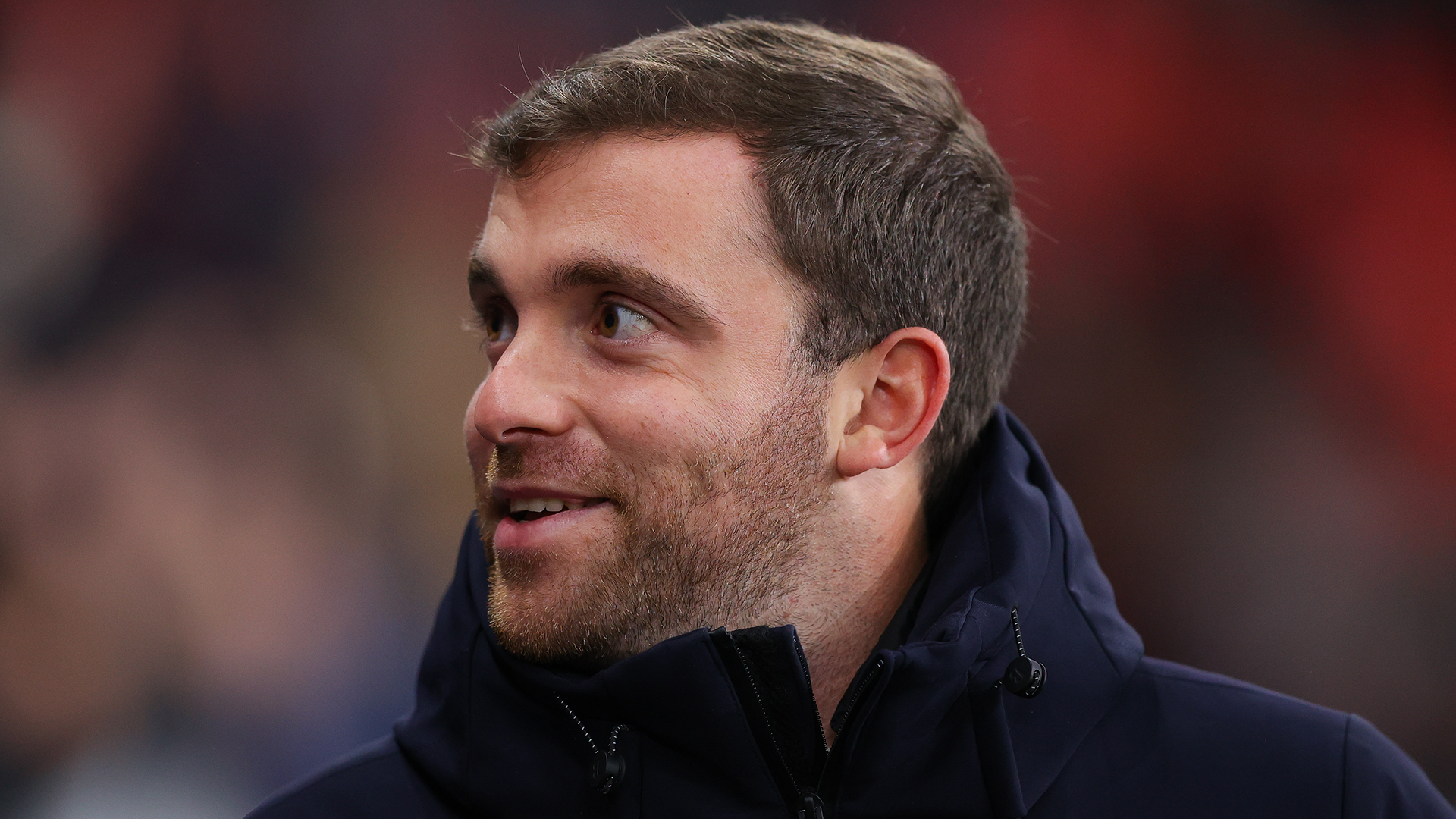It will be pretty awkward if Lamar Jackson ends up playing another season for the Baltimore Ravens. Even before Monday, the player/team dispute over whether or not Jackson deserves a long-term deal loaded with guaranteed money felt like too big of an emotional mess for the Ravens to clean up. The placement of the non-exclusive franchise tag on Jackson earlier this month even felt like a passive-aggressive nudge toward the door, encouraging him to negotiate with other teams in a way that a franchise truly committed to a cornerstone quarterback would never want to see.
But weeks have passed since the rest of the league's GMs could start making overtures toward Jackson, and nothing is any different. The QB had to be frustrated with that lack of action, because at the start of the week—perhaps not so coincidentally as his current coach John Harbaugh was beginning to talk to reporters at the NFL's annual league meeting—Jackson tweeted that he had asked for a trade from the Ravens at the start of March.
win the super bowl. You all are great but I had to make a business decision that was best for my family and I. No matter how far I go or where my career takes me, I’ll continue to be close to my fans of Baltimore Flock nation and the entire State of Maryland. You’ll See me again
— Lamar Jackson (@Lj_era8) March 27, 2023
If Jackson is taken at his word, it's very impressive that nobody leaked his request for over three weeks after it happened. That he's finally going public with it now would clearly signal just how badly he wants something to change. His statement yesterday did not make him sound like a guy who's ready or willing to play any more games for the Ravens, at least not under the one-year, $32.5 million pseudo-contract he's tied to right now.
But for Jackson to go somewhere else, another NFL franchise needs to step up and be willing to pay the price—either two first-round picks alongside a big contract the Ravens won't match, or a trade package shiny enough to let him go. So far, no one has made public their intentions to do so. In the immediate aftermath of the non-exclusive franchise tag news, it felt like GMs were furiously jockeying into phone booths to be the first to tell scoopsters they weren't interested in acquiring Jackson. And even after the unequivocal trade demand on Monday, the stove felt tepid at best.
The most excitement Lamar could muster came from Colts GM Chris Ballard, who left it at, "Anytime a special player is available, which he is, you've got to do the work ... But you never know how any of this will work out." Meanwhile, Jets GM Joe Douglas dismissed the thought out of hand, saying, "We have our plan, we have our process and we're sticking to that." And Commanders GM Martin Mayhew, most annoyingly, did some extraordinarily vague hand-waving to explain his disinterest in Jackson, refusing to elaborate on his statement that, "There are a ton of talented players that could help us, but we don't end up talking to (them) for various reasons."
Those "various reasons" could easily include some form of collusion, in which other NFL franchises have no interest in messing with what they see as the Ravens' contract squabble and don't want to drive the price of QBs even higher than Deshaun Watson levels. But plain old fear might be the even more straightforward answer. Jackson is a breathtaking, game-changing quarterback when he's at his best, but he's also expensive and comes with an injury history. A GM who takes the gigantic swing to pry him from the Ravens will have essentially staked his job on the outcome of this one move. A GM who prefers to find a cheaper QB in the draft and build around him with other much less famous (and less powerful) players can fly under the radar, and therefore avoid direct blame, for much longer.
If someone wants to build a team that doesn't go all in on Lamar, that's fine in its own way. But what has to be so frustrating for both fans and other players around the league is the almost-proud refusal of many teams to even dip their toes in the water. How many teams have a worse starting QB than peak Lamar Jackson? Most of them! And yet the prevailing message remains not, Let's see what we can do, but Hmmmmmm, letmethinknope.
Colts owner Jim Irsay was a special kind of prick about this on Monday. "There was an article recently saying the Rams mortgaged their future and now they're paying for it after they won the Super Bowl and had all that success, with the draft picks not being there," he said. "So, to me, that's what you have to be careful about."
You have to be careful about winning the Super Bowl and having success, says owner of team with one playoff win since 2015. American professional sports are uniquely frustrating in their allowance of guys like Irsay to say and think such things with a straight face while running such a lucrative business. It's not just the conservative thinking of the executive class—joyless, frightened, allergic to public responsibility—that Jackson has to contend with, but the structure that rewards that kind of thinking. The NFL is a place where consequences do not exist for owners who preside over non-competitive organizations. Why do anything that feels even a little bit risky when the TV checks will clear no matter what? Where's the upside?
Until some decision-maker emerges who believes in the actual competitive upside of employing Lamar Jackson, and more importantly cares about what that upside might do for the team and the product it puts out there for the fans, there's nowhere else he can play this year besides Baltimore.






